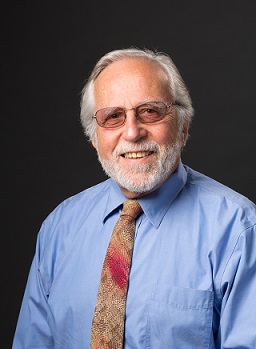Gerald Friedland honored at Yale’s first HIV/AIDS Symposium

On June 25, the Yale School of Medicine honored Koerner Fellow Gerald Friedland at its first HIV Symposium to celebrate his retirement and outstanding achievements in HIV/AIDS care, teaching, and research. The symposium gathered luminaires, scholars, and researchers in the field who recapped the extraordinary progress and accomplishments that have been made over the years in the treatment and prevention of AIDS. One of the symposium organizers, Merceditas Villanueva, Associate Professor of Medicine (AIDS), stated that “We’re now hoping that through the symposium and our just submitted D-CFAR application that we can promote improved collaboration between the many types of research going on at Yale.”
Dr. Friedland recently retired as the Director of the AIDS Program at Yale New Haven Hospital and Professor of Medicine and Epidemiology and Public Health at Yale School of Medicine. He is a former member of the Governing Council of the International AIDS Society, National Advisory Council, National Institute on Drug Abuse and Advisory Council, Office of AIDS Research, and the WHO HIV/TB Working Group, and currently serves as the Chairman of the Board of Directors of the Aaron Diamond AIDS Research Center in New York City.
Dr. Friedland has been directly involved in the development of comprehensive HIV care programs since the beginning of the HIV epidemic in 1981. His work was initially in the Bronx, New York and since 1991, in New Haven, Connecticut. He has developed and directed large-scale clinical and epidemiologic studies among vulnerable populations with and at risk for HIV disease. His group presented the first convincing evidence of lack of transmission of HIV by close personal contact, defined the predictors of HIV transmission and natural history of HIV disease among people who inject drugs and the risk of reactivation of tuberculosis among those co-infected with M.Tb and HIV. More recently, Dr. Friedland has worked on clinical trials of antiretroviral therapies. He developed and has been the Principal Investigator of New England ProACT, a regional AIDS clinical trials network affiliated with the CPCRA/INSIGHT, an NIH supported multisite program specializing in large-scale antiretroviral therapy strategy trials. In this work he has focused on the recruitment, enrollment, retention and special issues of HIV therapeutics among people who inject drugs and other marginalized populations, including pioneering work in defining phamacokinetic drug interactions between HIV and substance abuse therapies. Dr. Friedland’s research also has focused on studies at the interface of biology, clinical care and behavior, including adherence to HIV therapies and the integration of prevention strategies and clinical care. Dr. Friedland has been actively involved in HIV/AIDS international research during the past 16 years, aimed at providing access to antiretroviral therapy in resource limited settings, mainly in Sub-Saharan Africa. The major focus of this work is the integration of HIV and TB care and treatment in co-infected patients with the aim of improving diagnosis, treatment and outcome of both diseases. This work has led to the uncovering of extensively drug resistant tuberculosis (XDR TB) as a major cause of death among HIV/TB co-infected patients in South Africa and now focuses on the diagnosis, treatment and reduction of transmission of multiple drug resistant (MDR) and XDR TB in HIV co-infected patients. Dr. Friedland participates in several research projects addressing these issues in rural and urban South Africa, supported by charitable research foundations and the NIH. He has been appointed as a Visiting Professor at the Nelson. R Mandela School of Medicine of the University of KwaZulu Natal in Durban, South Africa and an Adjunct Professor at the Mailman School of Public Health of Columbia University. In addition to research activities, Dr. Friedland has been committed to and taken great and continuing pleasure in providing care and treatment to people living with HIV and TB and serving as a mentor for US and international students, residents, fellows, and faculty in infectious diseases, HIV/AIDS, TB and global health.